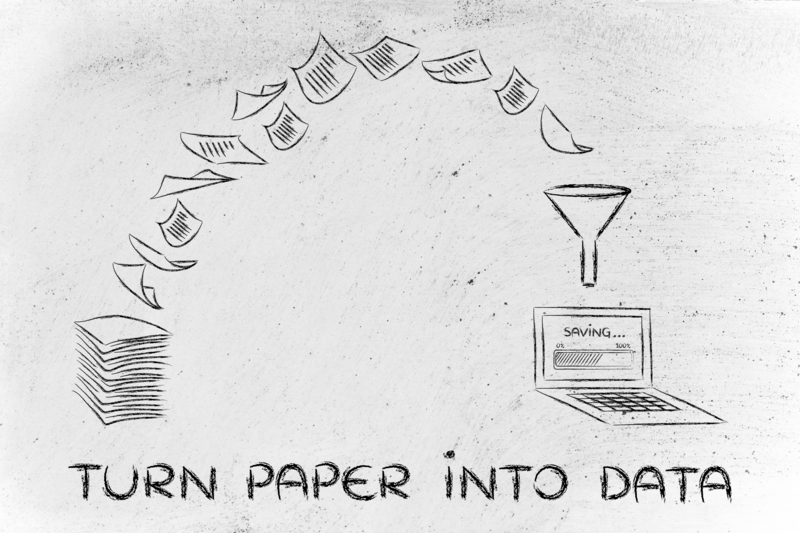Transform Your Old Pots and Pans Through Recycling
Have you ever wondered what to do with your old, scratched, or damaged pots and pans? Most people simply throw them in the trash, but there is a sustainable and creative solution--recycling! By recycling cookware, you not only help the planet but also free up kitchen space and unleash new possibilities for reuse. In this comprehensive guide, we'll explore everything you need to know about recycling old pots and pans, including where, how, and why to recycle, and creative ways to give them a second life.

Why Should You Recycle Old Pots and Pans?
Upgrading to new cookware is a joy, but discarding your old pots and pans improperly can harm the environment. These items are usually made from metals like aluminum, stainless steel, cast iron, and sometimes copper or non-stick materials--all of which are valuable resources.
- Reduce landfill waste: Millions of tons of kitchenware end up in landfills annually, taking decades or even centuries to decompose.
- Conserve resources: Metals used in cookware can be recycled infinitely without losing quality, conserving natural resources and energy.
- Lower carbon footprint: Recycling pots and pans uses less energy compared to creating new products from raw materials.
- Support circular economy: When old pots are recycled, they're transformed into new products--closing the sustainability loop.
Materials Found in Cookware: What Can Be Recycled?
Most cookware is constructed from recyclable metals or materials, allowing for the possibility of transformation. Understanding which materials can be recycled is key to recycling old pots and pans successfully.
- Stainless Steel: Known for its strength and climate resistance. Highly recyclable.
- Aluminum: Lightweight and extremely easy to recycle; perfect for transformation into new products.
- Cast Iron: Heavier, but cast iron is 100% recyclable and often coveted by scrap metal yards.
- Copper: Often found in premium cookware, copper pans are valuable for recycling due to their high conductivity and worth.
- Non-Stick Coatings (Teflon): While the coating itself can't be recycled easily, the underlying metal can be once the coating is removed.
- Enamel Coatings: Found on dutch ovens and pots; studios specialize in stripping enamel for metal recycling.
Note: Always check with your local recycling center regarding their specific requirements for accepting coated cookware.
How to Prepare Your Old Pots and Pans for Recycling
1. Clean Thoroughly
- Remove all food residues and grease before recycling.
2. Remove Non-Metal Parts
- Detach plastic or rubber handles and lids. These can contaminate recycling if left attached.
3. Separate Materials
- If your pan is a mix of materials (e.g. metal body, plastic handle, glass lid), separate them as best you can to streamline recycling.
4. Strip Coatings*
- Some recyclers require Teflon or enamel to be removed. If unsure, ask your facility if they'll accept items as-is.
*Never try to burn off non-stick coatings yourself--seek professional advice.
Where to Recycle Old Pots and Pans
Not sure where to start? There are several reliable options for recycling cookware and ensuring your items don't wind up in landfill.
Municipal Recycling Centers
- Most city recycling programs do not collect cookware curbside, but many have special drop-off events or scrap metal areas at local recycling centers.
- Call or check your municipality's website for instructions and accepted materials.
Scrap Yards
- Metal scrap yards are almost always eager to accept old pots and pans, especially if they're made from aluminum, cast iron, or copper.
- Some yards even pay a small fee for valuable metals!
Retailer Take-Back Programs
- Certain cookware stores or large retailers offer take-back and recycling programs. For example, chains like Williams Sonoma or Sur La Table occasionally run trade-in events for old cookware.
Donation & Reuse Centers
- If your old cookware is still functional, donate to charities, thrift shops, or shelters. Even slightly scratched pans can find a second home!
- Keep in mind, however, that non-stick pans with peeling coatings or damaged handles may not be accepted for reuse.
Creative Ways to Repurpose & Upcycle Old Cookware
Not all old pots and pans need to be scrapped. With creativity, you can transform cookware into beautiful, functional, or whimsical home decor and garden accessories.
Garden Planters
- Larger pots make excellent upcycled planters. Drill a few holes in the bottom for drainage and fill with soil and flowers.
Bird Feeders & Baths
- Deep pans or woks can be suspended or mounted as bird baths or seed trays in your backyard retreat.
Kitchen Decor & Storage
- Clean, varnish, or paint your old pots and hang them on the wall for rustic kitchen charm.
- Use pans to store utensils, cutlery, or as fruit bowls.
Candle Holders and Lanterns
- Mini saucepans and small pots can be repurposed as unique, metallic candle holders--just add tea lights!
Organizational Hacks
- Employ muffin tins for sorting small craft or office supplies.
- Use old baking sheets as magnetic memo boards.
Art Installations and DIY Gifts
- For the artistically inclined, upcycled cookware can be painted, mounted, or welded into sculptures or mosaics.
- Create personalized gifts or garden art by adding a touch of paint and imagination.
Environmental Benefits of Recycling Kitchen Cookware
- Energy Savings: Recycling metal typically uses up to 95% less energy than creating new metal from ore.
- Resource Efficiency: Old pots and pans supply raw materials for new products, reducing mining and extraction impacts.
- Pollution Prevention: Proper recycling reduces toxic runoff from metals and coatings that degrade in landfills.
- Wildlife Protection: By limiting landfill use and resource extraction, you help preserve natural habitats.
Transforming your old pots and pans through recycling makes a real, positive impact on both your home and the planet.
Common Mistakes to Avoid When Recycling Cookware
- Mixing Materials: Don't leave plastic or wooden handles attached. These hinder metal recycling processes.
- Dumping in Household Bins: Pots and pans generally aren't accepted in curbside bins, so find proper recycling channels.
- Skip Cleaning: Grease or food residue can contaminate recycling streams, so always clean cookware first.
- Assuming Non-Stick Can't Be Recycled: Many recyclers accept the metal core and can professionally handle the coating--just ask your local facility.
Frequently Asked Questions About Recycling Pots and Pans
Can I recycle non-stick pans?
Yes--with some caveats. The metal base is recyclable, but the coating (like Teflon) may need to be removed by the recycler. Always check with your local recycling facility for their specific requirements on non-stick cookware.
Do I need to remove all parts before recycling?
Yes, it's best to remove all non-metal components (plastic, wood, glass) to ensure your cookware is properly processed.
Can old pots and pans be placed in the regular recycling bin?
In most cases, no. Municipal recycling programs typically do not accept cookware in curbside bins. Find a designated drop-off location or a local scrap metal yard.
What if my cookware has rust or damage?
Even rusted or damaged pans can usually be recycled or upcycled! Rust does not affect the recyclability of metal. For repurposing at home, a little sanding or painting can revive even the oldest pan.
Who accepts old cookware donations?
If the pots and pans are still in usable condition, consider local shelters, food banks, thrift stores, or community kitchens. Be sure to call ahead and confirm what conditions they accept.

Step-by-Step: Transform Your Old Pots and Pans Today!
- Assess your kitchenware. Gather all old, scratched, or unused pots and pans.
- Sort by type of material. Separate aluminum, cast iron, stainless steel, copper, and coated items.
- Clean and prepare items. Remove all food, grease, and non-metal parts.
- Check local recycling guidelines. Contact your local center or scrap yard to learn about their requirements.
- Drop off or arrange donation. Take prepared cookware to your chosen recycling location or donation center.
- Get creative! Repurpose items at home with the upcycling ideas above.
Every pan recycled is a step toward a cleaner, greener world. Don't underestimate the impact of your choices--the journey to sustainability begins right in your kitchen!
Conclusion: Join the Movement to Recycle Your Old Cookware
Transforming your old pots and pans through recycling is easy, impactful, and gratifying. By making the decision to recycle, donate, or upcycle your cookware, you help conserve resources, reduce waste, and inspire others in your community to embrace eco-friendly habits.
Next time you wonder what to do with retired kitchenware, remember: Every frying pan, saucepan, or baking sheet holds new possibilities--either as raw material for the next great product or as decor, planters, and more in your home. Start transforming your old pots and pans today, and help forge a better future for generations to come.
Recycling old pots and pans isn't just responsible--it's a chance to be part of the solution. Give your cookware new life, and let your kitchen inspire sustainability!